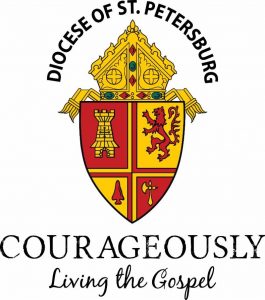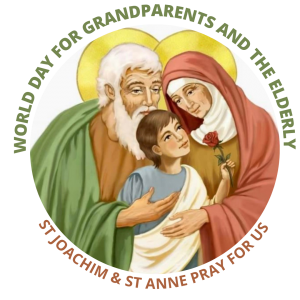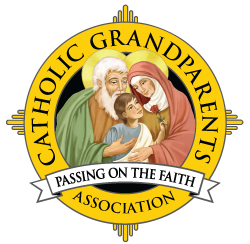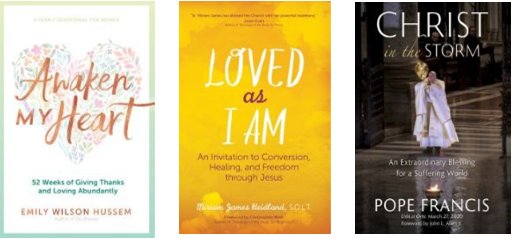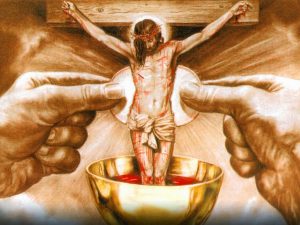 Have you ever met anyone, (or maybe you’ve been counted among those) who found the Catholic doctrine of transubstantiation a bit hard to accept? Maybe just for a minute or two you may have wondered how Jesus could talk about eating his flesh and drinking his blood? At the words in this Gospel, so many of Jesus’ disciples abandoned him that Jesus asked the twelve if they also planned to quit.
Have you ever met anyone, (or maybe you’ve been counted among those) who found the Catholic doctrine of transubstantiation a bit hard to accept? Maybe just for a minute or two you may have wondered how Jesus could talk about eating his flesh and drinking his blood? At the words in this Gospel, so many of Jesus’ disciples abandoned him that Jesus asked the twelve if they also planned to quit.
Jesus’ statements had caused arguments to break out within the crowd and gave Jesus the opportunity to move the conversation to the next level. The crowd begins to express confusion over how Jesus can give his flesh for them to eat. Jesus senses the restlessness but does not avoid the topic. Rather he makes an even more offensive statement: they will need to eat his flesh and drink his blood. He had spoken before about “eating” the bread from heaven, using a very common word. Now He switches to a less common word that has a connotation closer to “munch” or “gnaw”, a graphic word noisy eating, the sort of eating like an animal or your brother crunching a mouthful of fresh potato chips. But that is not the important point; this is eating that is urgent, even desperate. It is eating as though your life depends on it, because it does.
So, how did the early Christians interpret Jesus’ challenging words? History tells us that the pagan Romans made charges against the Christians for cannibalism. They had heard that when these people met, they ate and drank human blood. Not many Christians themselves questioned the real presence of Christ’s body and blood in the Eucharist till the Middle Ages. In trying to explain how bread and wine are changed into the body and blood of Christ, several theologians went astray and needed to be corrected by Church authority. Then St. Thomas Aquinas came along and offered an explanation that became classic. The Eucharist, he said, is the one instance of change we encounter in this world that is exactly the opposite. The appearances of bread and wine stay the same, but the very essence or substance of these realities, is totally transformed. What was once bread and wine are now Christ’s body and blood. A unique word “transubstantiation” was coined, and remains to this day, to an effort to explain the miracle of the changing of bread and wine into the Body and Blood of Jesus.
Such an awesome gift deserves its own feast. And that’s why, the feast of Corpus Christi was proposed by Thomas Aquinas to Pope Urban IV, who created a feast focused solely on the Holy Eucharist, emphasizing the joy of the Eucharist being the Body and Blood, Soul and Divinity of Jesus Christ.
When I ponder our Gospel reading, which is the same as that used for the Feast of Corpus Christi, it strikes me that with Christmas we were touched with joy and awe at the birth of the God-man Jesus. At Easter we explode with ALLELUIA at the resurrection of our Savior. The Ascension leaves us quietly looking upward, outward waiting in expectation for “what’s next?” Then, comes the solemnity of the Trinity – the mystery that baffles us … that God is so great, so awesome that only in three persons can all the divine manifestations be expressed. And, today, the solemnity of the Body and Blood of Christ – this touches, awakens in us feelings we can hardly express – that our God, our Jesus, our Savior would choose to gift us in such a personal, intimate way! Our Creator-God chooses to be “assimilated within the body of the creature.” His body and blood become, over and over, absorbed into my body – His blood courses in my veins … invading every fiber of my being. When the priest (or Eucharist minister) presents the host or chalice, looks us in the eye and says: “Body of Christ!” “Blood of Christ” – we are overcome with the awesomeness of this gift. All we can manage to say is “AMEN” – so be it – AMEN!
~Reflection by Sister Roberta Bailey, OSB
Pray for students beginning a new term … for healthy friendships, academic success, nurturing teachers and stimulating extracurricular activities.


